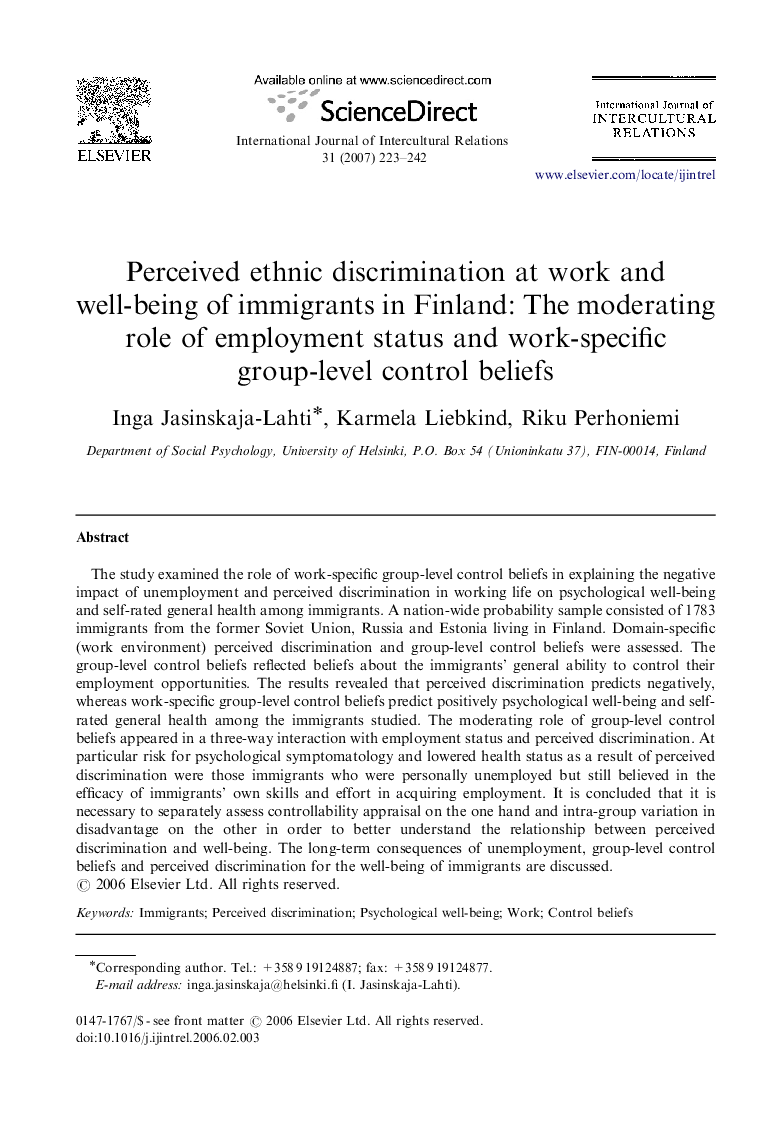| Article ID | Journal | Published Year | Pages | File Type |
|---|---|---|---|---|
| 947653 | International Journal of Intercultural Relations | 2007 | 20 Pages |
The study examined the role of work-specific group-level control beliefs in explaining the negative impact of unemployment and perceived discrimination in working life on psychological well-being and self-rated general health among immigrants. A nation-wide probability sample consisted of 1783 immigrants from the former Soviet Union, Russia and Estonia living in Finland. Domain-specific (work environment) perceived discrimination and group-level control beliefs were assessed. The group-level control beliefs reflected beliefs about the immigrants’ general ability to control their employment opportunities. The results revealed that perceived discrimination predicts negatively, whereas work-specific group-level control beliefs predict positively psychological well-being and self-rated general health among the immigrants studied. The moderating role of group-level control beliefs appeared in a three-way interaction with employment status and perceived discrimination. At particular risk for psychological symptomatology and lowered health status as a result of perceived discrimination were those immigrants who were personally unemployed but still believed in the efficacy of immigrants’ own skills and effort in acquiring employment. It is concluded that it is necessary to separately assess controllability appraisal on the one hand and intra-group variation in disadvantage on the other in order to better understand the relationship between perceived discrimination and well-being. The long-term consequences of unemployment, group-level control beliefs and perceived discrimination for the well-being of immigrants are discussed.
